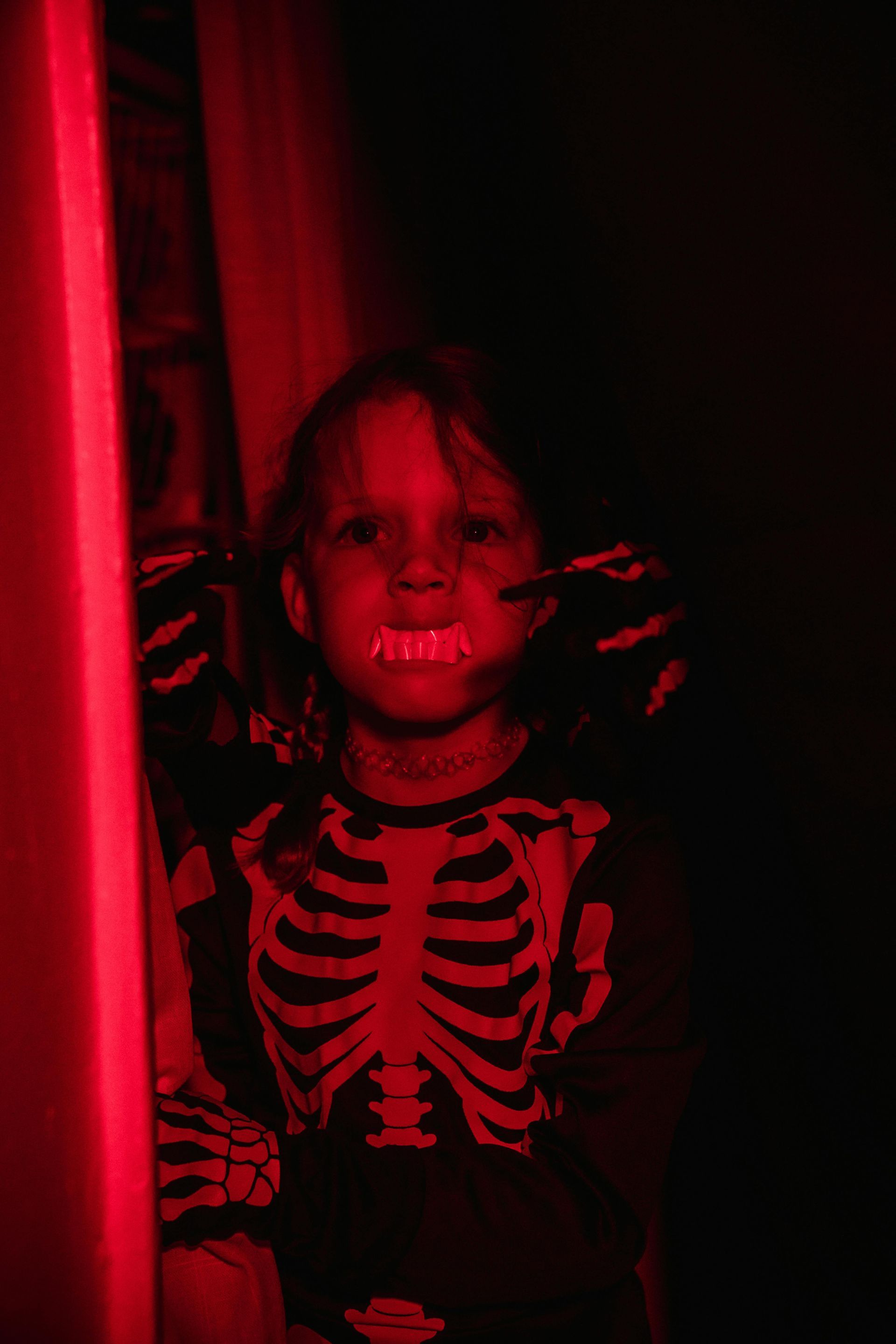NIGHT TERRORS
What Are Night Terrors? Night terrors are episodes of intense fear and panic that occur during sleep, commonly affecting children between the ages of 3 to 8, although they may occur at any age. Unlike nightmares, which happen during REM (Rapid Eye Movement) sleep and are usually remembered upon waking, night terrors occur during non-REM sleep, specifically in the deep sleep stages, and the child typically has no memory of the event the following morning. During a night terror, a child might suddenly sit up in bed, scream, thrash, display rapid breathing, a racing heartbeat, and appear very scared, but remain inconsolable and unresponsive to comfort.
When Do They Happen? Night terrors usually occur during the early part of the night, often within the first few hours after the child has fallen asleep. They can last anywhere from a few minutes to half an hour, after which the child may return to a calm sleep without waking up fully.
What to Do About Them? The best approach to handle a night terror is to ensure the child's safety and wait for the episode to pass. Avoid waking the child, as this can cause more disorientation or prolong the episode. Instead, gently guide them back to bed if they get out, ensure their environment is safe to prevent injury, and speak softly to provide reassurance. It can be comforting to dim any lights and maintain a calm environment. Since the child typically won’t recall the episode, there’s no need to discuss it with them unless they express concerns or seem upset about missing parts of the night. If night terrors are frequent or concerning, consulting a pediatrician is advisable to discuss possible underlying causes and solutions.
What Are They Associated With and Why? Night terrors can often be associated with stress, sleep deprivation, an irregular sleep schedule, fevers, or even underlying health issues like obstructive sleep apnea. They are thought to occur due to an over-arousal of the central nervous system (CNS) during sleep, which makes transitioning through sleep stages difficult. The uncertain timing and lack of recall make them unsettling, but they are generally not indicative of deeper psychological issues. Good sleep hygiene practices, like consistent bedtimes, a calming nighttime routine, and adequate sleep, can help reduce their frequency. Understanding that night terrors are generally harmless and usually outgrown will help parents or caregivers approach these nocturnal disruptions with calm.


